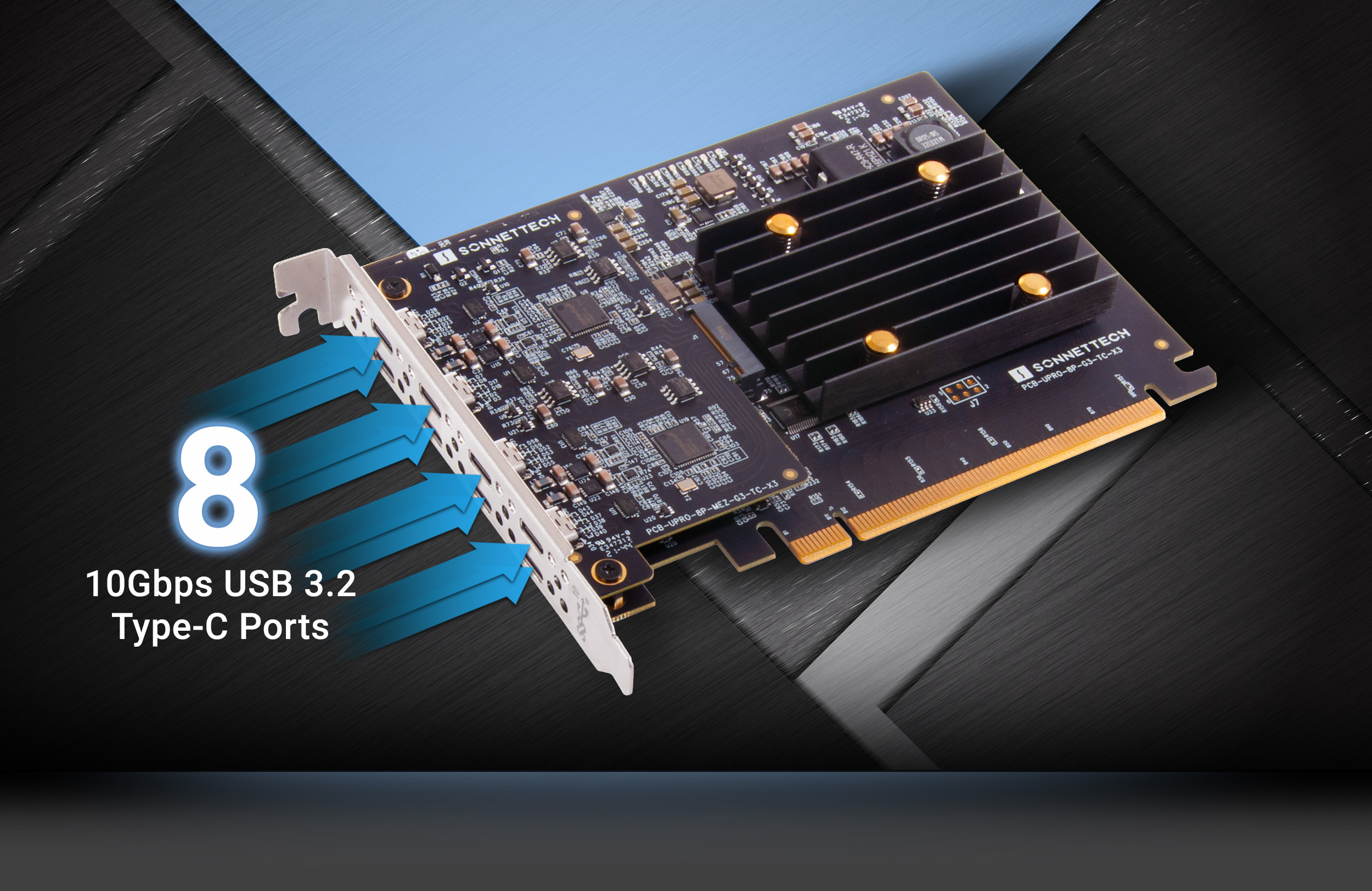Sonnet Builds 8-Port 10Gbps USB-C PCIe Adapter
Sonnet launches the Allegro Pro USB-C 8-port PCIe 3.2 Gen 2 card.
Get Tom's Hardware's best news and in-depth reviews, straight to your inbox.
You are now subscribed
Your newsletter sign-up was successful
After about seven years on the market, USB Type-C connectors with USB 3.x SuperSpeed+ (10Gbps) data transfer mode are becoming mainstream standards for a variety of peripherals, including those used by professionals. But there lies a problem. Modern motherboards rarely have more than three USB-C ports, and for many creative professionals, three is not enough. To address this issue, Sonnet developed a card with eight 10Gbps USB-C connectors specifically for those who need many Type-C interfaces.
To enable eight USB 3.2 Gen 2 ports, the Sonnet Allegro Pro USB-C PCIe 3.0 x8 card carries four ASMedia 3142 controllers (with a PCIe 3.0 x2 interface) supporting a pair of USB-C connectors each. It also features an unknown PCIe 3.0 x8 bridge that orchestrates their operation with the host to eliminate bandwidth congestion and even enable the virtualization of ports. As a result, Sonnet claims that the card can concurrently deliver full 10Gbps bandwidth through each port.
The Sonnet Allegro Pro USB-C 8-Port PCIe card is designed primarily for audio/video professionals who use plenty of separate devices and require high-speed interfaces to transfer files, according to the company. While eight USB-C ports is an indisputable benefit of the card, we have something to add when it comes to performance.
The Allegro Pro USB-C 8-Port PCIe card comes with a PCIe 3.0 x8 interface, so its peak data transfer rate is 7.877 GB/s in each direction without 128b/130b encoding overhead. Meanwhile, four USB 3.2 Gen 2 controllers can generate up to 1.25 GB/s in one direction without 128b/130b encoding overhead. Therefore, while we can hardly imagine a usage scenario when all eight USB 3.2 Gen 2 Type-C ports need all their bandwidth for data transfer in one direction, in such a scenario, the card will not be able to offer 10 Gbps bandwidth for all ports. Yet, since we deal with mixed workloads in most cases, this limitation is barely applicable to real-world situations.
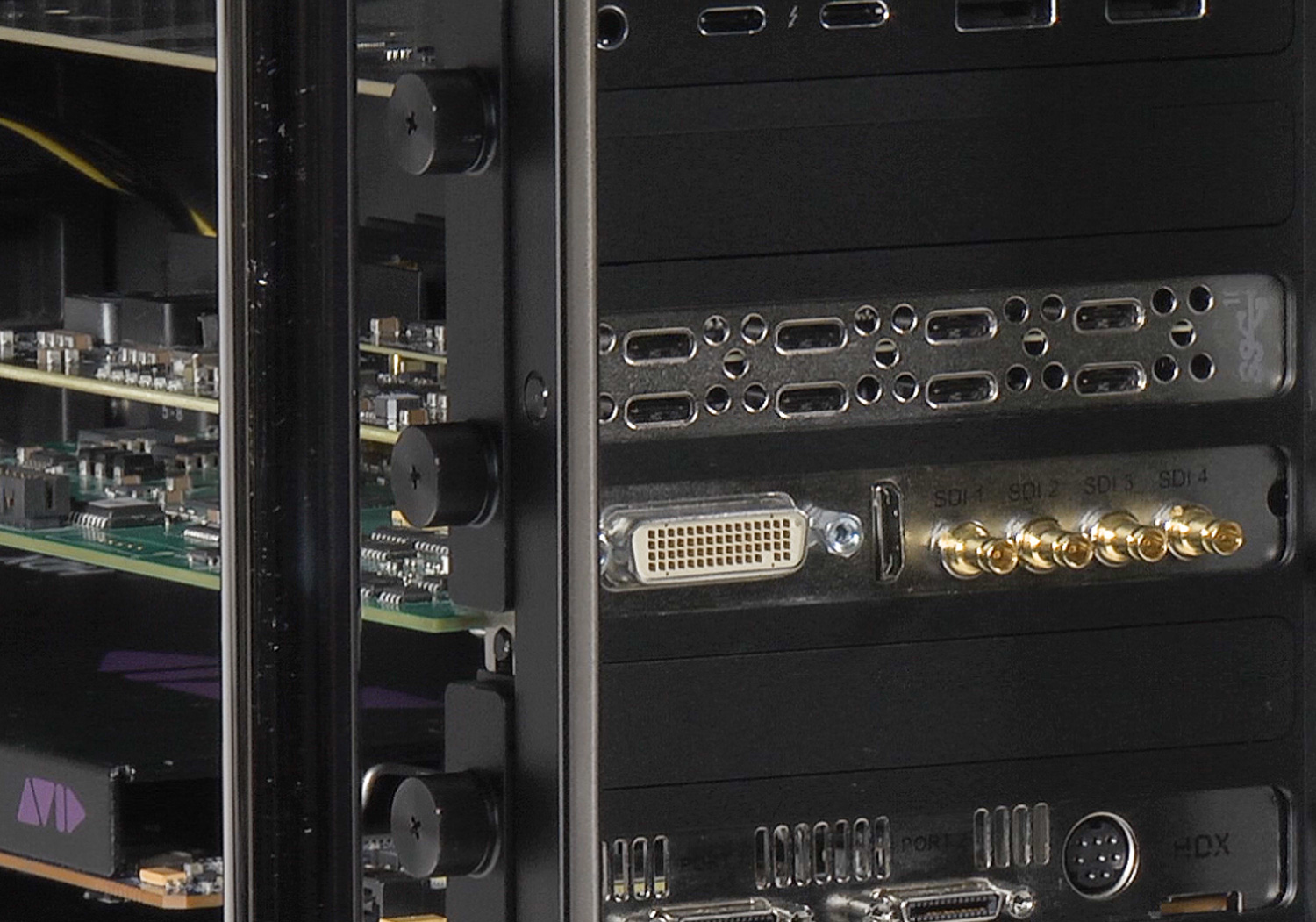
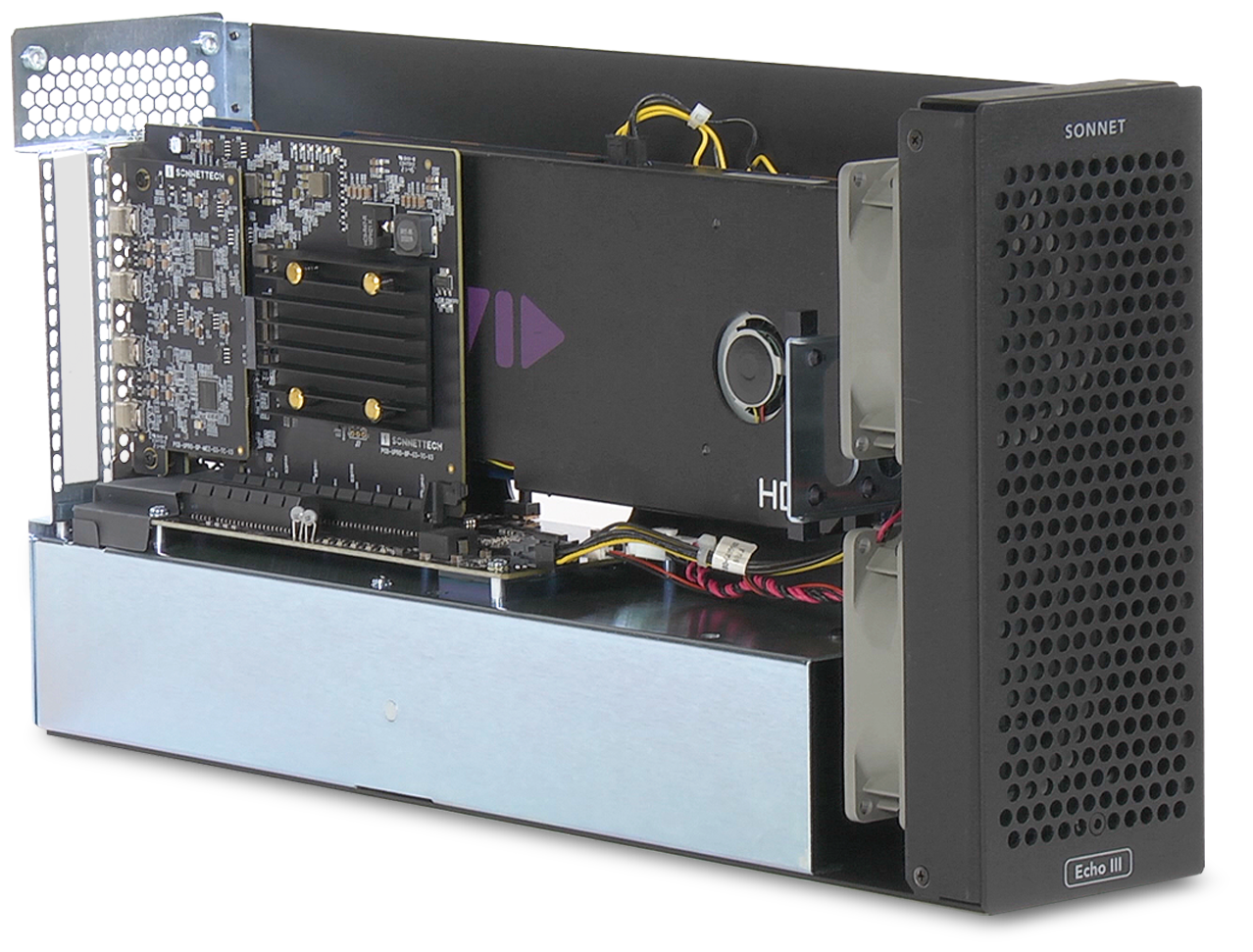
Meanwhile, those who need extreme performance from an external device typically use Thunderbolt 3/4 ports, so they will continue to use them while plugging other peripherals into the Allegro Pro USB-C card. Furthermore, keep in mind that there are not many desktop-grade SSDs that can hit 7.877 GB/s anyway, so the limitation is mainly hypothetical.
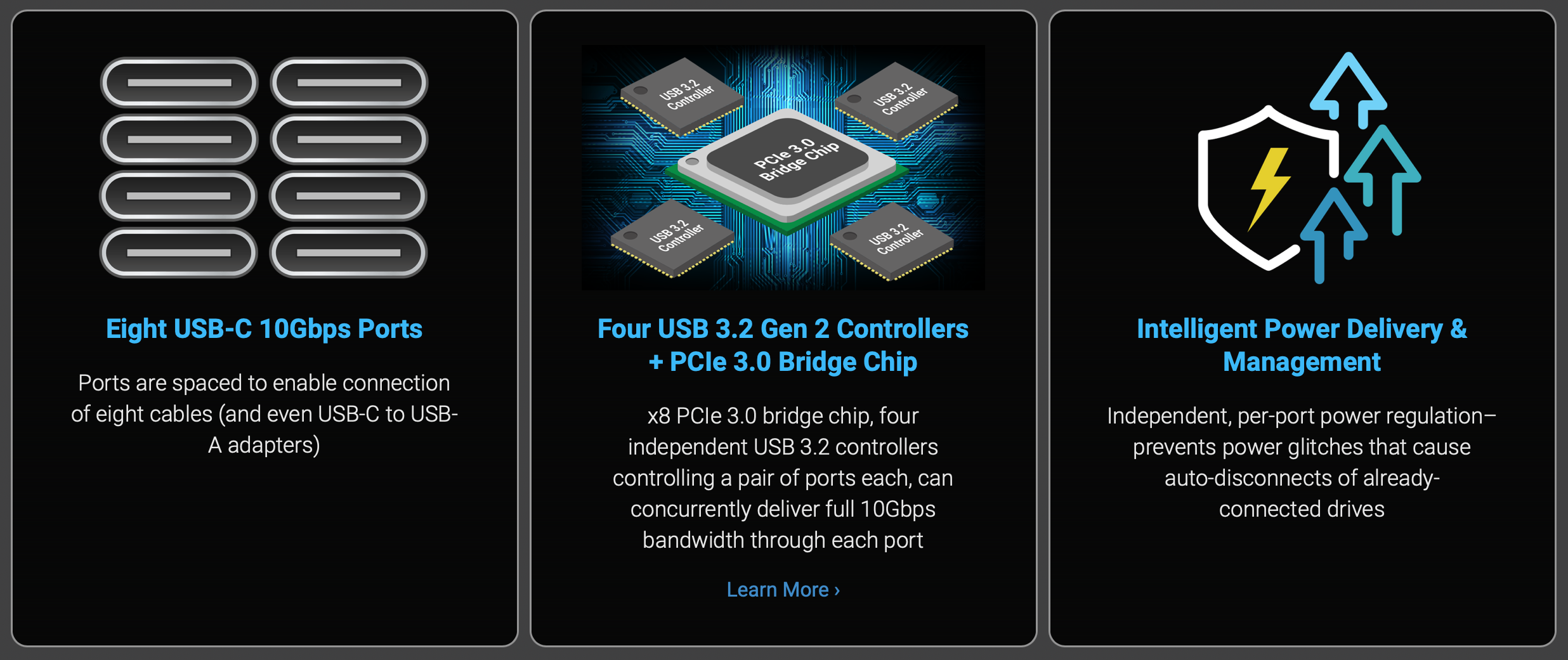
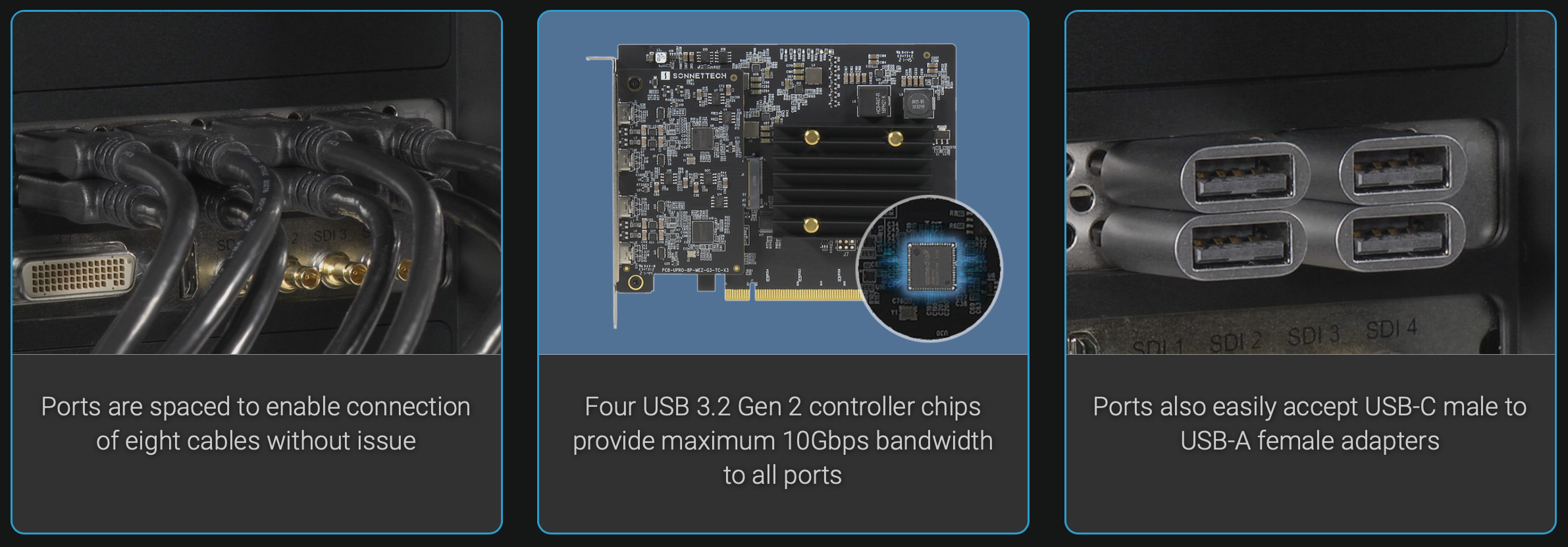
The board comes in a full-height half-length form factor and has a small heatsink to cool down the PCIe bridge. The card takes just one slot and can be installed into a desktop or into an external Thunderbolt expansion box (which means total bandwidth will be limited to that of Thunderbolt 3/4 — 32.4 Gbit/s without encoding overhead). Its power consumption is unclear, but it can deliver up to 7.5W of power to each of its USB 3.2 Gen 2 connectors. The board is compatible with Apple's macOS, Microsoft's Windows, and Linux.
The Allegro Pro USB-C 8-Port PCIe Card (USB3C-8PM-E) is available now directly from Sonnet at a price of $399.99.The company's partners will soon start selling the product as well, according to the company.
Get Tom's Hardware's best news and in-depth reviews, straight to your inbox.

Anton Shilov is a contributing writer at Tom’s Hardware. Over the past couple of decades, he has covered everything from CPUs and GPUs to supercomputers and from modern process technologies and latest fab tools to high-tech industry trends.
